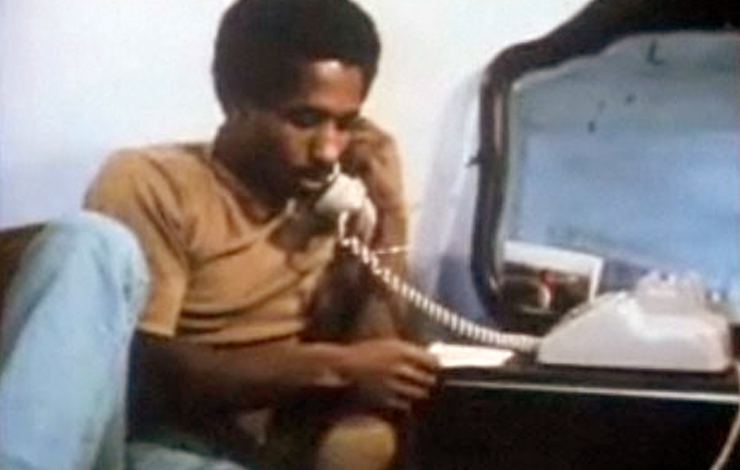
There's a moment in Marco Williams' 1992 film, In Search of Our Fathers, that changed my life. I was a photographer when I saw the film. I had just finished a series on Latino and Asian immigrants in the South and was hesitantly toying with the idea of turning it into a film.
Here's the scene: Williams, who was raised by his mother and aunt, had been trying for months to get his mother to talk about his father, whom he had never met and knew nothing about. Having finally relented, she allowed him to come to Paris, where she was living, and film an interview. In the scene, you see her sit down, get ready and start talking. But there's no sound--just her lips silently mouthing the story we've all been waiting to hear since the film started. Then Williams' voiceover comes in: "It was every filmmaker's nightmare..." He goes on to explain that the Nagra he had carted to Paris had malfunctioned, and he didn't learn until returning home that the penultimate moment in his film had no audio. Without missing a beat, he conveys his mother's story as she sits on camera, silently talking.
I was hooked. Wow--to take a monumental mistake like that and turn it into a funny, touching and exceedingly memorable scene! I didn't know much about filmmaking, but I knew I loved that moment. Without it, the film would still have been a pleasure and inspiration for me. It's an ironic, thoughtful and unexpected take on what it does and doesn't mean to grow up without a father. But it's Williams' magical fuck-up that has embedded itself in my psyche.
Of course, I've since learned that most screw-ups are far from magical and can be downright agonizing, even scarring you for life. I recently met John Douglas, one of the makers (with Norm Fruchter and Robert Kramer) of Summer of '68, the classic agitprop film of the 1960s. When we sat down, all he could talk about was the scene he missed when his film ran out, "when things really got good." Thirty-seven years after making a great film, he was still tortured by what he missed!
And I've learned that magical snafus happen in narrative film as well--just consider the scene in Midnight Cowboy, when Dustin Hoffman is almost run over by a taxi after a day of ruined takes, and he spontaneously delivers the line that has become a signature quote of 1970s filmmaking: "We're walkin' heeaah!"
But it's in the messy, convoluted medium of documentary film that these moments really shine. When Ross McElwee's ubiquitous 16mm camera breaks and he picks up his mother's video-cam in the early moments of Time Indefinite, it becomes a meditation on the synchronicity of home movies and "professional" filmmaking. The examples are endless. Unfortunately, I have yet to experience my own truly magical mistake--although I've had plenty of the other kind in my short filmmaking career. But I'm deeply grateful for, and will always be seeking, that truly transcendent moment that I experienced while watching Williams' film.
David Zeiger is the director of Sir! No Sir!.
